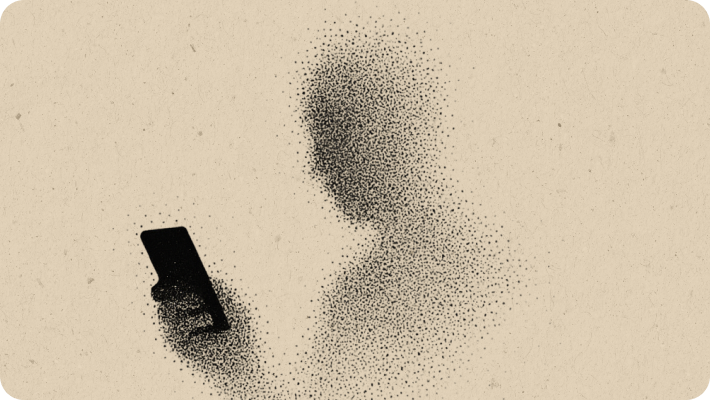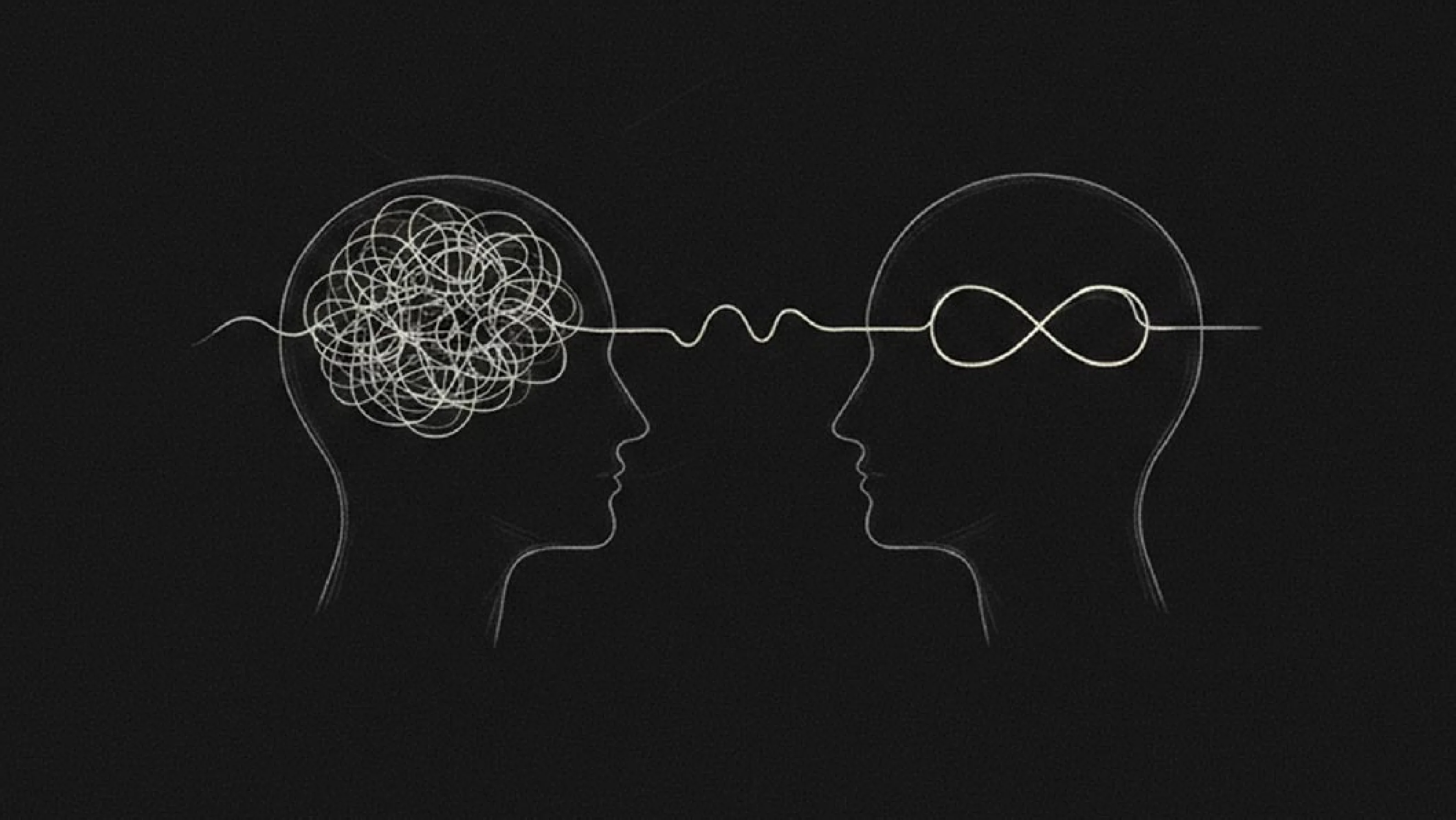
Here’s how to reclaim yourself…
We talk obsessively about time, but only to convey how busy we are. That’s justified because, considering the average human lifespan of 80 years, we all have roughly just 4,000 weeks to live. But, ironically, our good intentions may not be enough to save us from a theft that is effectively shortening our lives. Tech companies, specifically social media platforms, have been stealing our time by speeding up our sense of time, and we are helplessly aiding them through our phones.
Recently, as I sat with my leadership team to brainstorm our Annual Operating Plan (AOP), I realised we were all drifting back and forth from our screens to participate in the discussion. After three exhausting days, we ended up scheduling more time next week in our calendars to finalise the six-page memo to be circulated to the wider team. The job should have been done within those 3 days, but no one was to be blamed, except the phone that took away our valuable attention. The constant scramble for time isn't unique to entrepreneurs. Friends and family often express frustrations about not having enough time for personal goals or pursuits, feeling trapped in demanding jobs. And yet, they can be seen mindlessly scrolling their phone screens all the time. A quick look at phone notifications ends up with half an hour of scrolling. Research has found that people using apps like Instagram start to underestimate the time they are on such platforms after just a few minutes of use.
The illusion of multitasking
Studies by Professor Earl Miller, who works at the cutting edge of brain research at MIT, have shown that our brain can produce a maximum of one or two thoughts in our conscious minds at any given time. Our "online workspace," on which most cognitive mechanisms depend, is surprisingly limited, and an average adult human brain has the ability to retain a maximum of four items at one time. We are extremely single-minded with limited cognitive capacity. This is in contrast to machines, which can process one or more tasks and store large amounts of data simultaneously.
We adopted this concept of machine-powered multitasking and applied it to ourselves. This approach is detrimental in four significant ways:
- Our performance drops: every time we switch between tasks, it takes us much longer to refocus on the task at hand;
- We become more error-prone: when switching from task to task, our brain has to pick up where it left off, and it can’t do this perfectly, so glitches begin to occur;
- We are likely to be less creative: our ability to form associations across different ideas diminishes;
- We have less storage space: our ability to recall is lower.
Therefore, if context switching occurs, like checking your phone in the middle of a brainstorming session, evidence suggests that we will be slower, make more mistakes, be less creative, and remember less of what we do.
In one experiment conducted at the University of Texas at Austin, researchers asked participants to sit at a computer and take a series of tests that required full attention to score well. The tests were geared towards measuring the participants' cognitive abilities to map the brain's capacity to hold and process data at any given point in time. Before the tests, the participants were asked to keep their phones either in their bags, face down, or in a different room. The research found that participants with their phones in another room performed better than those who had their phones turned upside down or kept in their bags.
Everyday technologies are designed to seek your attention
B.F. Skinner, a pioneering American psychologist, was the first to establish the concept of reinforcement to influence behaviour. Simply put, if we perceive a reward to be delivered at random, and if checking for the reward comes at little cost, we end up checking habitually. The army of engineers in Silicon Valley expanded this insight to build short-term, dopamine-driven feedback loops to keep users engaged. The higher the engagement, the more valuable the product becomes. We have entered an arms race for attention. According to data.ai (previously App Annie), an Indian smartphone user spends 4 hours a day on their smartphone, approximately 25% of their waking time on screens. Social media apps, video apps, and communication apps account for more than 80% of the total time spent on the phone.
To gain our attention, apps and sites leverage psychology to make us crave hearts and likes, succumb to spending hours on infinite scrolls, and expose us to triggers that excite, enrage, and anger us. Continually dividing your attention between different tasks also means creating constant anxiety and stress. When attention is constantly switched between simultaneous tasks, it makes people lose track of time. A recent study tracking various biomarkers of body age, such as muscle mass and telomere length, found that those who spent more time staring at screens aged faster. This may be due to people with high screen time likely also having other unhealthy habits, but it could also be due to stress inflicted by living out of sync with reality.

Be intentional rather than habitual
I am a staunch tech optimist. Technology has improved and will continue to enhance the lives of billions of people through better healthcare and access to education. My stance isn’t anti-tech. What I am contemplating is whether we can design technologies that, instead of degrading our attention spans, empower us to focus better and make meaningful progress toward our goals. What if, instead of a barrage of notifications, I received just one notification a day? What if my social media apps significantly slowed down once I had used the allotted quota for the day? What if infinite scrolling were replaced by page numbers? And what if recommendation engines were designed not to display the most polarising views but the most accurate depictions of world events? These changes would directly impact the bottom line of some of the world's largest tech companies. Hence, the practical rationalist in me isn't too hopeful; the current design is intentionally built to maintain the concentration of wealth and attention among a select few. (Unless there is a large-scale movement or government intervention).
The second approach to regaining my focus involves my personal resolve. I am acutely aware of my willpower's limitations in outmanoeuvring my addiction to “behavioural cocaine”, but I cannot wait for the world to be perfect before I initiate change. Therefore, after our Annual Operating Plan discussions, where the buzzing of smartphones was the only constant, I have implemented several behavioural changes at both personal and organisational levels to minimise distractions:
- I avoid checking my phone first thing in the morning. Only after two hours of focused, deep work am I permitted to check it. Sometimes, I don’t check my phone until mid-day, and surprisingly, the world still moves on.
- Email office hours: I have set a specific time slot to check my email.
- I check my Twitter feed at the end of the day.
- I leave my phone at my desk during one-on-one meetings with my team, preferring walking meetings instead.
- All notifications on my phone are permanently turned off.
These small steps toward digital detox are just the beginning of my journey to reclaim the power of undivided attention for my life’s tasks. To be in control of my time, I choose tasks that are intentional rather than habitual. For now, the phone is off and my mind is on.
Here’s how to reclaim yourself…
We talk obsessively about time, but only to convey how busy we are. That’s justified because, considering the average human lifespan of 80 years, we all have roughly just 4,000 weeks to live. But, ironically, our good intentions may not be enough to save us from a theft that is effectively shortening our lives. Tech companies, specifically social media platforms, have been stealing our time by speeding up our sense of time, and we are helplessly aiding them through our phones.
Recently, as I sat with my leadership team to brainstorm our Annual Operating Plan (AOP), I realised we were all drifting back and forth from our screens to participate in the discussion. After three exhausting days, we ended up scheduling more time next week in our calendars to finalise the six-page memo to be circulated to the wider team. The job should have been done within those 3 days, but no one was to be blamed, except the phone that took away our valuable attention. The constant scramble for time isn't unique to entrepreneurs. Friends and family often express frustrations about not having enough time for personal goals or pursuits, feeling trapped in demanding jobs. And yet, they can be seen mindlessly scrolling their phone screens all the time. A quick look at phone notifications ends up with half an hour of scrolling. Research has found that people using apps like Instagram start to underestimate the time they are on such platforms after just a few minutes of use.
The illusion of multitasking
Studies by Professor Earl Miller, who works at the cutting edge of brain research at MIT, have shown that our brain can produce a maximum of one or two thoughts in our conscious minds at any given time. Our "online workspace," on which most cognitive mechanisms depend, is surprisingly limited, and an average adult human brain has the ability to retain a maximum of four items at one time. We are extremely single-minded with limited cognitive capacity. This is in contrast to machines, which can process one or more tasks and store large amounts of data simultaneously.
We adopted this concept of machine-powered multitasking and applied it to ourselves. This approach is detrimental in four significant ways:
- Our performance drops: every time we switch between tasks, it takes us much longer to refocus on the task at hand;
- We become more error-prone: when switching from task to task, our brain has to pick up where it left off, and it can’t do this perfectly, so glitches begin to occur;
- We are likely to be less creative: our ability to form associations across different ideas diminishes;
- We have less storage space: our ability to recall is lower.
Therefore, if context switching occurs, like checking your phone in the middle of a brainstorming session, evidence suggests that we will be slower, make more mistakes, be less creative, and remember less of what we do.
In one experiment conducted at the University of Texas at Austin, researchers asked participants to sit at a computer and take a series of tests that required full attention to score well. The tests were geared towards measuring the participants' cognitive abilities to map the brain's capacity to hold and process data at any given point in time. Before the tests, the participants were asked to keep their phones either in their bags, face down, or in a different room. The research found that participants with their phones in another room performed better than those who had their phones turned upside down or kept in their bags.
Everyday technologies are designed to seek your attention
B.F. Skinner, a pioneering American psychologist, was the first to establish the concept of reinforcement to influence behaviour. Simply put, if we perceive a reward to be delivered at random, and if checking for the reward comes at little cost, we end up checking habitually. The army of engineers in Silicon Valley expanded this insight to build short-term, dopamine-driven feedback loops to keep users engaged. The higher the engagement, the more valuable the product becomes. We have entered an arms race for attention. According to data.ai (previously App Annie), an Indian smartphone user spends 4 hours a day on their smartphone, approximately 25% of their waking time on screens. Social media apps, video apps, and communication apps account for more than 80% of the total time spent on the phone.
To gain our attention, apps and sites leverage psychology to make us crave hearts and likes, succumb to spending hours on infinite scrolls, and expose us to triggers that excite, enrage, and anger us. Continually dividing your attention between different tasks also means creating constant anxiety and stress. When attention is constantly switched between simultaneous tasks, it makes people lose track of time. A recent study tracking various biomarkers of body age, such as muscle mass and telomere length, found that those who spent more time staring at screens aged faster. This may be due to people with high screen time likely also having other unhealthy habits, but it could also be due to stress inflicted by living out of sync with reality.

Be intentional rather than habitual
I am a staunch tech optimist. Technology has improved and will continue to enhance the lives of billions of people through better healthcare and access to education. My stance isn’t anti-tech. What I am contemplating is whether we can design technologies that, instead of degrading our attention spans, empower us to focus better and make meaningful progress toward our goals. What if, instead of a barrage of notifications, I received just one notification a day? What if my social media apps significantly slowed down once I had used the allotted quota for the day? What if infinite scrolling were replaced by page numbers? And what if recommendation engines were designed not to display the most polarising views but the most accurate depictions of world events? These changes would directly impact the bottom line of some of the world's largest tech companies. Hence, the practical rationalist in me isn't too hopeful; the current design is intentionally built to maintain the concentration of wealth and attention among a select few. (Unless there is a large-scale movement or government intervention).
The second approach to regaining my focus involves my personal resolve. I am acutely aware of my willpower's limitations in outmanoeuvring my addiction to “behavioural cocaine”, but I cannot wait for the world to be perfect before I initiate change. Therefore, after our Annual Operating Plan discussions, where the buzzing of smartphones was the only constant, I have implemented several behavioural changes at both personal and organisational levels to minimise distractions:
- I avoid checking my phone first thing in the morning. Only after two hours of focused, deep work am I permitted to check it. Sometimes, I don’t check my phone until mid-day, and surprisingly, the world still moves on.
- Email office hours: I have set a specific time slot to check my email.
- I check my Twitter feed at the end of the day.
- I leave my phone at my desk during one-on-one meetings with my team, preferring walking meetings instead.
- All notifications on my phone are permanently turned off.
These small steps toward digital detox are just the beginning of my journey to reclaim the power of undivided attention for my life’s tasks. To be in control of my time, I choose tasks that are intentional rather than habitual. For now, the phone is off and my mind is on.

Here’s how to reclaim yourself…
We talk obsessively about time, but only to convey how busy we are. That’s justified because, considering the average human lifespan of 80 years, we all have roughly just 4,000 weeks to live. But, ironically, our good intentions may not be enough to save us from a theft that is effectively shortening our lives. Tech companies, specifically social media platforms, have been stealing our time by speeding up our sense of time, and we are helplessly aiding them through our phones.
Recently, as I sat with my leadership team to brainstorm our Annual Operating Plan (AOP), I realised we were all drifting back and forth from our screens to participate in the discussion. After three exhausting days, we ended up scheduling more time next week in our calendars to finalise the six-page memo to be circulated to the wider team. The job should have been done within those 3 days, but no one was to be blamed, except the phone that took away our valuable attention. The constant scramble for time isn't unique to entrepreneurs. Friends and family often express frustrations about not having enough time for personal goals or pursuits, feeling trapped in demanding jobs. And yet, they can be seen mindlessly scrolling their phone screens all the time. A quick look at phone notifications ends up with half an hour of scrolling. Research has found that people using apps like Instagram start to underestimate the time they are on such platforms after just a few minutes of use.
The illusion of multitasking
Studies by Professor Earl Miller, who works at the cutting edge of brain research at MIT, have shown that our brain can produce a maximum of one or two thoughts in our conscious minds at any given time. Our "online workspace," on which most cognitive mechanisms depend, is surprisingly limited, and an average adult human brain has the ability to retain a maximum of four items at one time. We are extremely single-minded with limited cognitive capacity. This is in contrast to machines, which can process one or more tasks and store large amounts of data simultaneously.
We adopted this concept of machine-powered multitasking and applied it to ourselves. This approach is detrimental in four significant ways:
- Our performance drops: every time we switch between tasks, it takes us much longer to refocus on the task at hand;
- We become more error-prone: when switching from task to task, our brain has to pick up where it left off, and it can’t do this perfectly, so glitches begin to occur;
- We are likely to be less creative: our ability to form associations across different ideas diminishes;
- We have less storage space: our ability to recall is lower.
Therefore, if context switching occurs, like checking your phone in the middle of a brainstorming session, evidence suggests that we will be slower, make more mistakes, be less creative, and remember less of what we do.
In one experiment conducted at the University of Texas at Austin, researchers asked participants to sit at a computer and take a series of tests that required full attention to score well. The tests were geared towards measuring the participants' cognitive abilities to map the brain's capacity to hold and process data at any given point in time. Before the tests, the participants were asked to keep their phones either in their bags, face down, or in a different room. The research found that participants with their phones in another room performed better than those who had their phones turned upside down or kept in their bags.
Everyday technologies are designed to seek your attention
B.F. Skinner, a pioneering American psychologist, was the first to establish the concept of reinforcement to influence behaviour. Simply put, if we perceive a reward to be delivered at random, and if checking for the reward comes at little cost, we end up checking habitually. The army of engineers in Silicon Valley expanded this insight to build short-term, dopamine-driven feedback loops to keep users engaged. The higher the engagement, the more valuable the product becomes. We have entered an arms race for attention. According to data.ai (previously App Annie), an Indian smartphone user spends 4 hours a day on their smartphone, approximately 25% of their waking time on screens. Social media apps, video apps, and communication apps account for more than 80% of the total time spent on the phone.
To gain our attention, apps and sites leverage psychology to make us crave hearts and likes, succumb to spending hours on infinite scrolls, and expose us to triggers that excite, enrage, and anger us. Continually dividing your attention between different tasks also means creating constant anxiety and stress. When attention is constantly switched between simultaneous tasks, it makes people lose track of time. A recent study tracking various biomarkers of body age, such as muscle mass and telomere length, found that those who spent more time staring at screens aged faster. This may be due to people with high screen time likely also having other unhealthy habits, but it could also be due to stress inflicted by living out of sync with reality.

Be intentional rather than habitual
I am a staunch tech optimist. Technology has improved and will continue to enhance the lives of billions of people through better healthcare and access to education. My stance isn’t anti-tech. What I am contemplating is whether we can design technologies that, instead of degrading our attention spans, empower us to focus better and make meaningful progress toward our goals. What if, instead of a barrage of notifications, I received just one notification a day? What if my social media apps significantly slowed down once I had used the allotted quota for the day? What if infinite scrolling were replaced by page numbers? And what if recommendation engines were designed not to display the most polarising views but the most accurate depictions of world events? These changes would directly impact the bottom line of some of the world's largest tech companies. Hence, the practical rationalist in me isn't too hopeful; the current design is intentionally built to maintain the concentration of wealth and attention among a select few. (Unless there is a large-scale movement or government intervention).
The second approach to regaining my focus involves my personal resolve. I am acutely aware of my willpower's limitations in outmanoeuvring my addiction to “behavioural cocaine”, but I cannot wait for the world to be perfect before I initiate change. Therefore, after our Annual Operating Plan discussions, where the buzzing of smartphones was the only constant, I have implemented several behavioural changes at both personal and organisational levels to minimise distractions:
- I avoid checking my phone first thing in the morning. Only after two hours of focused, deep work am I permitted to check it. Sometimes, I don’t check my phone until mid-day, and surprisingly, the world still moves on.
- Email office hours: I have set a specific time slot to check my email.
- I check my Twitter feed at the end of the day.
- I leave my phone at my desk during one-on-one meetings with my team, preferring walking meetings instead.
- All notifications on my phone are permanently turned off.
These small steps toward digital detox are just the beginning of my journey to reclaim the power of undivided attention for my life’s tasks. To be in control of my time, I choose tasks that are intentional rather than habitual. For now, the phone is off and my mind is on.

Resonating with this philosophy?
Join the smartest founders mastering the inner game to face the unknown. Read by YC & Sequoia.



To be continued…
A small favor...
I don't run ads. If this brought clarity, the biggest favor you can do is subscribe below.




.svg)

.svg)

